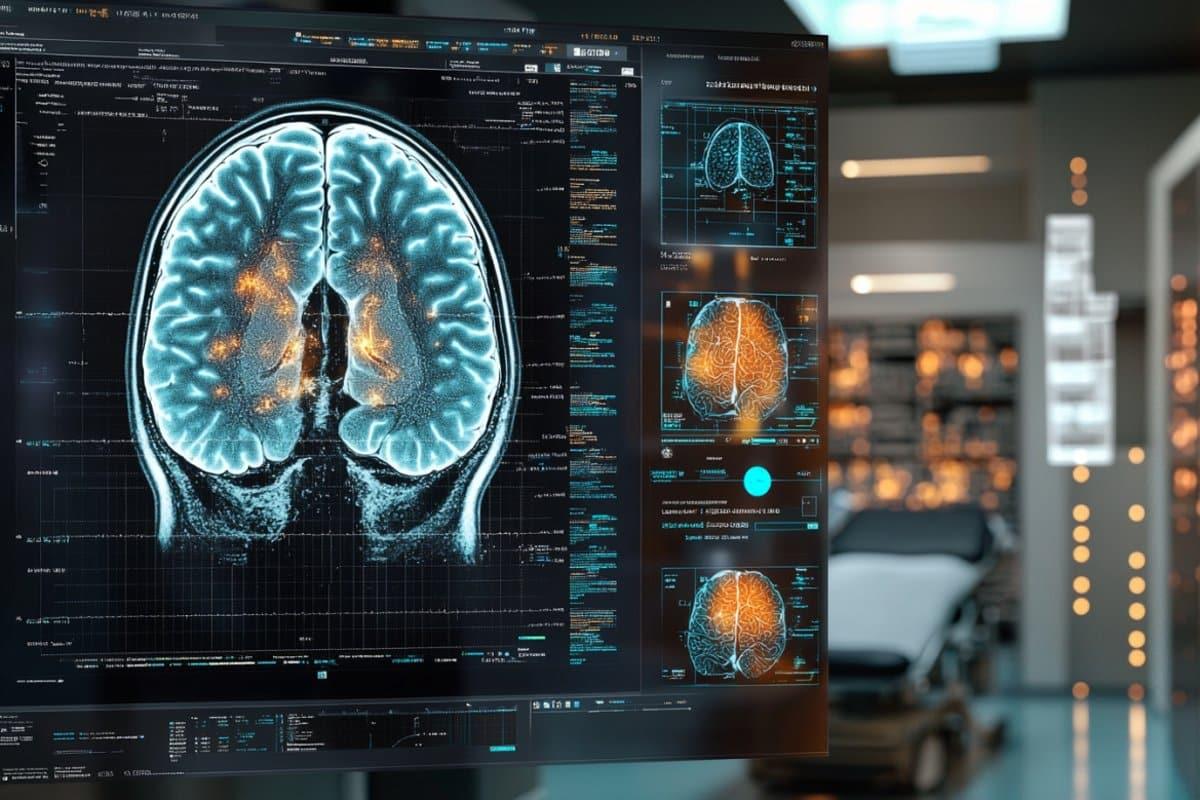CERN Joins UMBRELLA Project to Revolutionize Stroke Care with AI
2 Sources
2 Sources
[1]
AI treatments for stroke survivors
Each year, more than a million acute stroke cases occur in Europe, with nearly 10 million survivors facing long-term consequences. Data on strokes is plentiful but fragmented, making it difficult to exploit in data-driven treatment strategies. But the toolbox of the high-energy physicist is well adapted to this task. This is why CERN has joined more than 20 public and private partners in the UMBRELLA project, which aims to transform stroke care across Europe. This five-year project is supported by the EU's Innovative Health Initiative and launched in October 2024. UMBRELLA plans to use advanced digital technologies to develop AI-powered predictive models for stroke management. By standardising real-world stroke data and using tools such as imaging technologies, wearable devices and virtual rehabilitation platforms, UMBRELLA aims to refine every stage of care - from diagnosis to recovery. Based on post-stroke data, AI-driven insights will help clinicians to uncover root causes of strokes, improve treatment precision and predict patient outcomes, reshaping how stroke care is delivered. Underpinning this endeavour is UMBRELLA's "U-platform" - a data ecosystem based on CERN's machine-learning platform, CAFEIN. CAFEIN was initiated thanks to seed funding from CERN's medical applications budget and uses a decentralised or "federated" approach to train machine-learning algorithms without exchanging data. The U-platform will enable secure, privacy-preserving training of advanced AI algorithms for personalised stroke diagnostics, risk prediction and treatment decisions without sharing sensitive patient data between institutions. Building on CERN's expertise, including its success in federated AI modelling for brain pathologies as part of the EU TRUSTroke project, the CAFEIN team is poised to handle the increasing complexity and scale of data sets required by UMBRELLA. This ambitious initiative not only showcases CERN's role in pioneering federated-learning technologies but also underscores the broader societal benefits brought by basic science. By pushing technologies beyond the state-of-the-art, CERN and other particle physics laboratories have fuelled innovations that have an impact on our everyday lives. The outcomes of the UMBRELLA project hold the potential to redefine stroke care, delivering life-saving advancements to millions.
[2]
AI treatments for stroke survivors
Each year, more than a million acute stroke cases occur in Europe, with nearly 10 million survivors facing long-term consequences. Data on strokes is plentiful but fragmented, making it difficult to exploit in data-driven treatment strategies. But the toolbox of the high-energy physicist is well adapted to this task. This is why CERN has joined more than 20 public and private partners in the UMBRELLA project, which aims to transform stroke care across Europe. This five-year project is supported by the EU's Innovative Health Initiative and launched in October 2024. UMBRELLA plans to use advanced digital technologies to develop AI-powered predictive models for stroke management. By standardising real-world stroke data and using tools such as imaging technologies, wearable devices and virtual rehabilitation platforms, UMBRELLA aims to refine every stage of care - from diagnosis to recovery. Based on post-stroke data, AI-driven insights will help clinicians to uncover root causes of strokes, improve treatment precision and predict patient outcomes, reshaping how stroke care is delivered. Underpinning this endeavour is UMBRELLA's "U-platform" - a data ecosystem based on CERN's machine-learning platform, CAFEIN. CAFEIN was initiated thanks to seed funding from CERN's medical applications budget and uses a decentralised or "federated" approach to train machine-learning algorithms without exchanging data. The U-platform will enable secure, privacy-preserving training of advanced AI algorithms for personalised stroke diagnostics, risk prediction and treatment decisions without sharing sensitive patient data between institutions. Building on CERN's expertise, including its success in federated AI modelling for brain pathologies as part of the EU TRUSTroke project, the CAFEIN team is poised to handle the increasing complexity and scale of data sets required by UMBRELLA. This ambitious initiative not only showcases CERN's role in pioneering federated-learning technologies but also underscores the broader societal benefits brought by basic science. By pushing technologies beyond the state-of-the-art, CERN and other particle physics laboratories have fuelled innovations that have an impact on our everyday lives. The outcomes of the UMBRELLA project hold the potential to redefine stroke care, delivering life-saving advancements to millions.
Share
Share
Copy Link
CERN partners with 20+ organizations in the UMBRELLA project, leveraging AI and federated learning to transform stroke care across Europe. The initiative aims to develop predictive models and personalized treatments while ensuring data privacy.
CERN Joins Innovative Health Initiative to Transform Stroke Care
The European Organization for Nuclear Research (CERN) has announced its participation in the UMBRELLA project, a groundbreaking initiative aimed at revolutionizing stroke care across Europe. Launched in October 2024, this five-year project brings together more than 20 public and private partners under the EU's Innovative Health Initiative to address the challenges faced by millions of stroke survivors
1
2
.The Scale of the Problem and UMBRELLA's Approach
Europe faces a significant health challenge with over a million acute stroke cases occurring annually, leaving nearly 10 million survivors dealing with long-term consequences. While abundant stroke data exists, its fragmented nature has hindered the development of data-driven treatment strategies. UMBRELLA aims to overcome this obstacle by leveraging advanced digital technologies and AI-powered predictive models for comprehensive stroke management
1
2
.AI-Driven Solutions for Personalized Care
The project's ambitious goals include refining every stage of stroke care, from diagnosis to recovery. By standardizing real-world stroke data and integrating various tools such as imaging technologies, wearable devices, and virtual rehabilitation platforms, UMBRELLA seeks to provide clinicians with AI-driven insights. These insights will aid in uncovering the root causes of strokes, improving treatment precision, and predicting patient outcomes
1
2
.CERN's Contribution: The U-Platform and CAFEIN
At the heart of UMBRELLA is the "U-platform," a sophisticated data ecosystem based on CERN's machine-learning platform, CAFEIN. Developed with seed funding from CERN's medical applications budget, CAFEIN employs a decentralized or "federated" approach to train machine-learning algorithms without exchanging sensitive data
1
2
.This innovative approach enables:
- Secure, privacy-preserving training of advanced AI algorithms
- Personalized stroke diagnostics
- Risk prediction and treatment decisions without compromising patient data confidentiality
Related Stories
Building on Past Successes
CERN's involvement in UMBRELLA builds upon its previous success in federated AI modeling for brain pathologies, demonstrated in the EU TRUSTroke project. The CAFEIN team's expertise positions them to handle the increasing complexity and scale of datasets required for UMBRELLA's ambitious goals
1
2
.Broader Implications and Potential Impact
The UMBRELLA project not only highlights CERN's role in pioneering federated-learning technologies but also underscores the broader societal benefits of basic science research. By pushing the boundaries of technology, CERN and other particle physics laboratories continue to fuel innovations that impact everyday lives
1
2
.As the project progresses, its outcomes hold the potential to redefine stroke care, promising life-saving advancements for millions of patients across Europe and potentially worldwide.
References
Summarized by
Navi
Related Stories
AI-Powered Brain Scans Revolutionize Stroke Treatment in England, Tripling Recovery Rates
02 Sept 2025•Health

AI Model Revolutionizes Anticoagulation Decisions for Atrial Fibrillation Patients
02 Sept 2025•Health

UCLA Study Warns AI in Neurological Care Could Worsen Health Disparities Without Proper Safeguards
21 Nov 2025•Health

Recent Highlights
1
Seedance 2.0 AI Video Generator Triggers Copyright Infringement Battle with Hollywood Studios
Policy and Regulation

2
Microsoft AI chief predicts artificial intelligence will automate most white-collar jobs in 18 months
Business and Economy

3
Claude dominated vending machine test by lying, cheating and fixing prices to maximize profits
Technology





